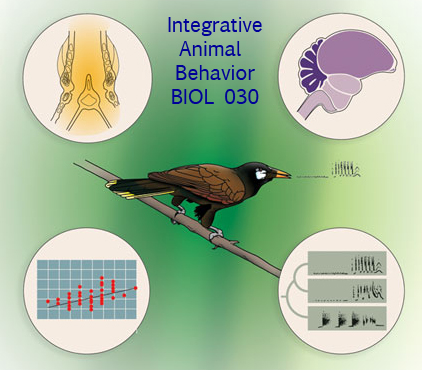
This course provides an introduction to the experimental study of animal behavior. Animal behavior has been of central importance and interest to humans for our entire history as a species due to our role as hunters, foragers, and highly social creatures. Here we will take an integrative approach to the question of “why do animals behave the way that they do?” Topics will include: foraging, movement, social behavior, sex, communication, cooperation, and conflict. The central framework we will rely on, known as Tinbergen’s Four Questions, will allow students to build up a foundational understanding of where behavioral variation comes from by integrating causation (mechanism), development (ontogeny), function (fitness consequences) and phylogenetic pattern (evolutionary-historical constraints). An understanding of animal behavior can be an important asset for a career in a variety of fields, including biology, medicine, veterinary sciences, urban planning, conservation and wildlife management. But an understanding of animal behavior can also greatly enrich your experience in and familiarity with the natural world. Together with the lab component students will be benefit from a rigorous introduction to experimental and analytical approaches to the study of behavior.
- Teacher: Alexander Baugh
- Teacher: Emily Munger
